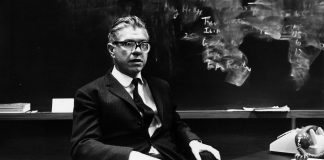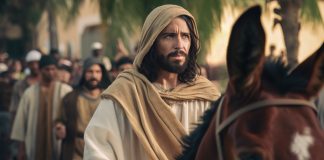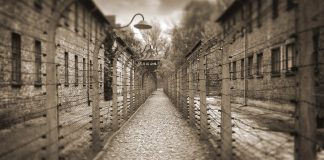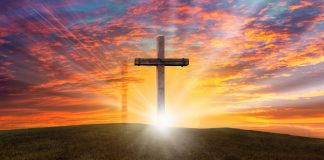Why I believe in God
If I could turn back time and return to my friend’s living room that day, when she was telling me with tears in her eyes that she wished she could believe, that she tries but is not able, I would probably find more appropriate words than I did then.
The Shakahola massacre | The apocalypse that brings psychosis instead of hope
More than 300 bodies have been found in a Kenyan forest and at least 600 people are missing. The victims, including children, belonged to an apocalyptic cult that carried out a plan of mass suicide by starvation. The shock of the Shakahola massacre has reverberated beyond Kenya's borders, raising disturbing questions, including how the message of Revelation, part of the good news of...
What do we do with the lingering sense of guilt?
I baptize you with water for repentance. But after me comes one who is more powerful than I, whose sandals I am not worthy to carry. He will baptize you with the Holy Spirit and fire. – Matthew 3:11
What did Jesus believe about Creation?
Perhaps the greatest mystery for Christians is the incarnation of God, described in the words of the apostle John, an eyewitness to the life of Jesus: "The Word became flesh and made his dwelling among us. We have seen His glory, the glory of the only Son, who came from the Father, full of grace and truth" (John 1:14).
Misunderstanding a “memorable misunderstanding”
The spontaneous generation of life on Earth is as likely as a whirlwind putting a Boeing 747 together using scattered spare parts in a junkyard.
If God is good, why is there so much suffering?
To nothing else is the name of God so often linked in our human discourse as to suffering and deliverance. This locus is a huge and complicated intersection of our existence.
Is the hero better than his God?
Its nomination for six Academy Awards and winning in two categories [1] confirmed the feeling of the public that they were dealing with a very good movie, in every way.
The prophecy of the Messiah
Daniel chapter 9 contains what many consider to be the most sublime prophecy of the Old Testament—a prophecy of the Messiah, Jesus Christ. Amazingly, not only did this prophecy reveal the purpose of His incarnation as a child, but it also specified when His ministry would begin and when He would die.
Is Jesus the only way to God?
This seemingly innocent question has probably caused more unrest in the last 2000 years than any other. It is, in fact, an echo of the concern of the ancient Jews to determine whether or not Israel was God's only people on earth. It also represents the echo of history that has witnessed wars born of the desire to legitimise a supreme deity.
The theology of the cross and the “theology” of the coming of age
When we try to understand our fellow human beings, to grasp their thinking, the reasons behind their decisions, and the purpose of their actions, a familiar adage from popular wisdom comes to mind: “Put yourself in their shoes.”
Living a resurrection life
In February 2008, English theologian NT Wright made headlines—at least on the website of Time magazine, among others—with comments associated with the launch of his book, Surprised by Hope: Rethinking Heaven, the Resurrection, and the Mission of the Church.
COVID-19: Which end is The End?
As the crisis caused by the new coronavirus deepened and spread, it was to be expected that the phenomenon would be framed in apocalyptic terms. It is something that tends to occur in such contexts.
The fatherly Sovereign
In a society with a pragmatic mindset, any kind of belief is subject only to practical judgments. Effectiveness, usefulness, and utility are the basic criteria by which actions, deeds or beliefs are valued.
How (and why) to encourage your pastor
After 25 years in the ministry, during which he never once considered leaving, Pastor Tim Kuperus admits that the last three years have been difficult enough for him to consider a different path.
The soul and its meaning according to the Bible
“Soul” is a very special term. Due to lack of space, I shall not approach it here philosophically or scientifically, but exclusively in the context of biblical theology, narrowing it even further, to a linguistic point of view.


























